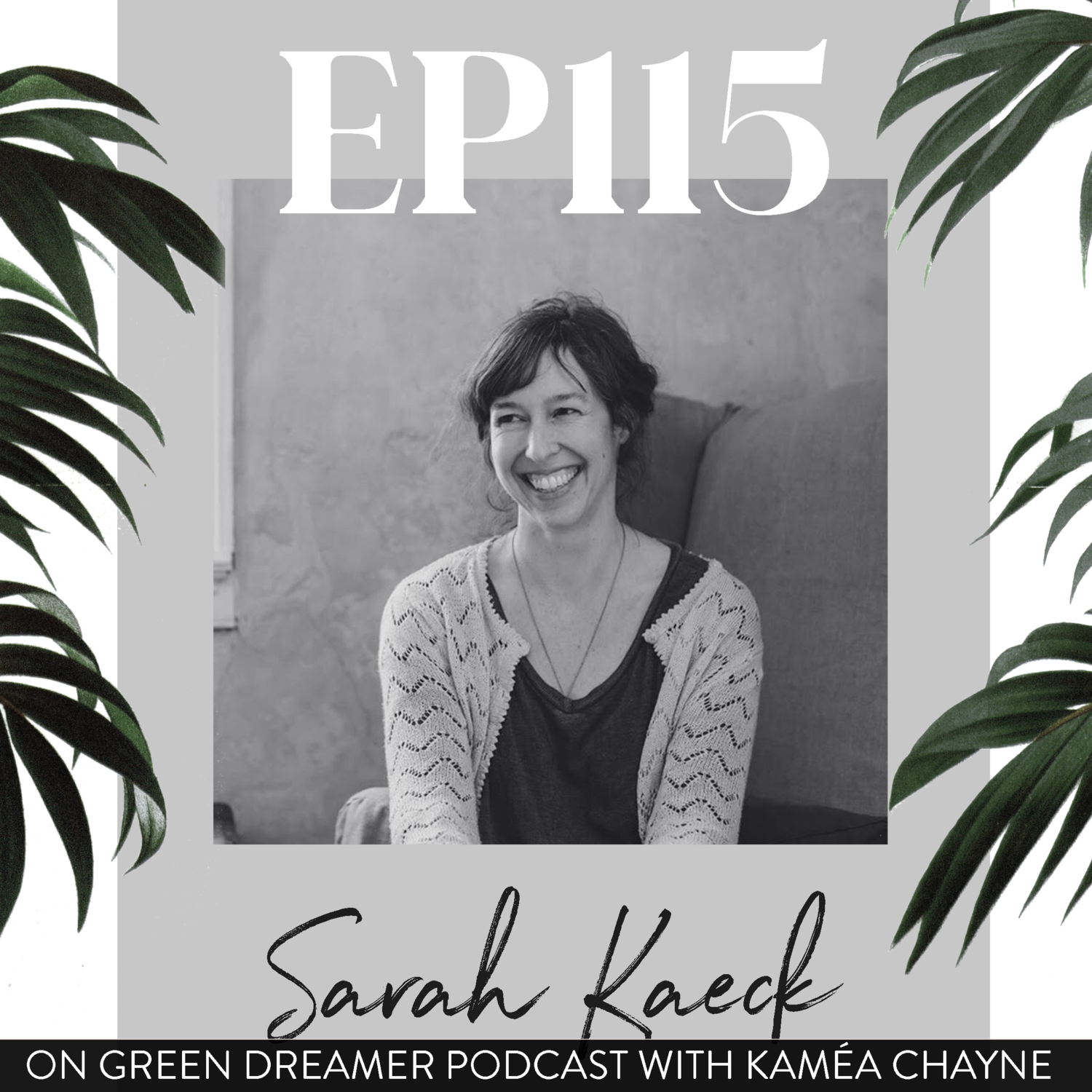Relearning marginalized ideas of food storage in tackling plastic pollution
Why have we parted ways with some traditional but perfectly functional and natural ways of storing food in favor of plastic packaging? Given that companies aren't necessarily held liable for their negative externalities (e.g., waste, pollution, etc.), how can we get them to be voluntarily responsible for their impacts?
Sharing her wisdom here is Sarah Kaeck, Founder of Bee's Wrap. You'll hear about how plastic has made its way into all corners of our modern day lives, why sustainable beekeeping is so important, how to sustainably scale a business that makes a positive impact, and more. Let's dive in!
If you feel inspired by this episode, please consider donating a gift of support of any amount today!
This is a conversation on Green Dreamer Podcast with Kaméa Chayne, a show exploring environmental and intersectional sustainability from ideas to life. Subscribe to Green Dreamer on iTunes, Spotify, Stitcher, or any podcast app and let’s learn what it takes to thrive in every sense of the word!
Highlights
[2:25] What first inspired Sarah's passion for the environment.
[3:05] What led Sarah to focus her career on sustainability.
[5:58] How Bee's Wrap is made.
[6:35] Kaméa: "Why do you think such a healthy, functional, and practical way of storing food has been lost?"
[9:09] Kaméa: "How can we get companies that make things to think about the long-term impacts since they're not held liable for that?"
[9:50] Sarah: "Consumerism is a tool that we can use to help guide the inventors and the people who are bringing these products into the public sphere."
[10:43] Sarah shares how she and her team got the idea of Bee's Wrap across to so many people.
[13:33] How Sarah has been able to scale her business while maintaining the company's quality and ethos.
[14:58] Sarah's biggest personal challenge from this journey.
[15:54] Sarah's advice for maintaining focus on the present and not getting overwhelmed by all there is to get done.
[16:31] Kaméa: "Do you think it's possible for a really large company to operate sustainably while supporting a sustainable future at the same time?"
[18:05] Sarah shares the role of beekeeping for sustainability.
[19:36] How can we, as consumers, ensure that the beeswax or honey in what we buy come from sustainably managed hives?
[21:12] Sarah discusses what we need in order to phase out single-use plastics.
References
About our Guest
Founded in 2012 in Sarah's home kitchen, Bee's Wrap has grown to an international sensation with over 35 employees, is sold in more than 2,400 stores worldwide, and has partnered with brands such as Patagonia, and National Geographic to bring sustainable living to the masses. Sarah is a mother of three and is also an avid gardener, milker of goats, keeper of chickens, and a seamstress. By infusing organic cotton with beeswax, organic jojoba oil, and tree resin, she created a washable, reusable, and compostable alternative to plastic wrap.
Keep in touch
Website: www.beeswrap.com
Instagram: @beeswrap
Twitter: @beeswrap
Facebook: @beeswrap
Tips
Inspiration: Conscious Company Magazine(Listen to its Founder on Green Dreamer Episode #7)
Note to self: "I come back to the present moment."
Health practice: "I take daily walks in the woods and I do yoga three times a week."
Sustainability practice: "I'm working on carrying the things I need with me to avoid single-use plastics on the go."
Element of hope: "I'm inspired by this great movement and the awareness of single-use plastics in our lives!"
Closing words: "We're all in this together."

